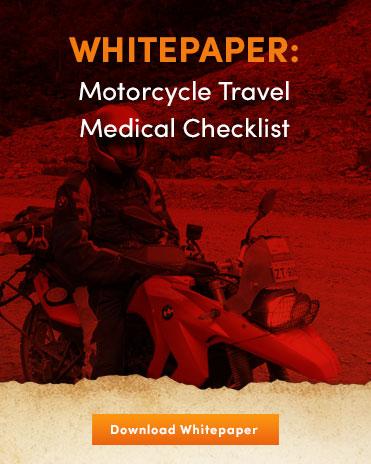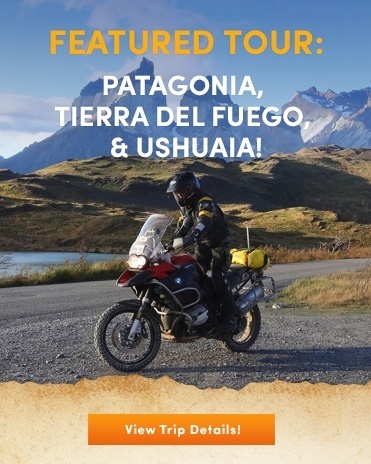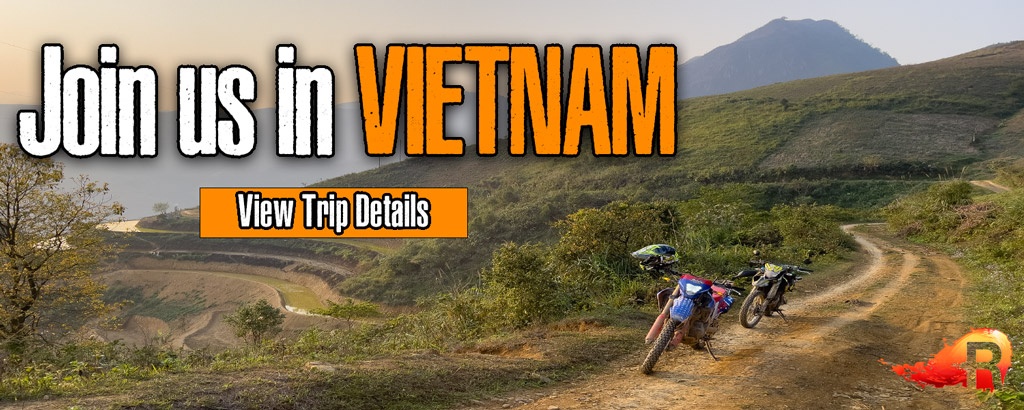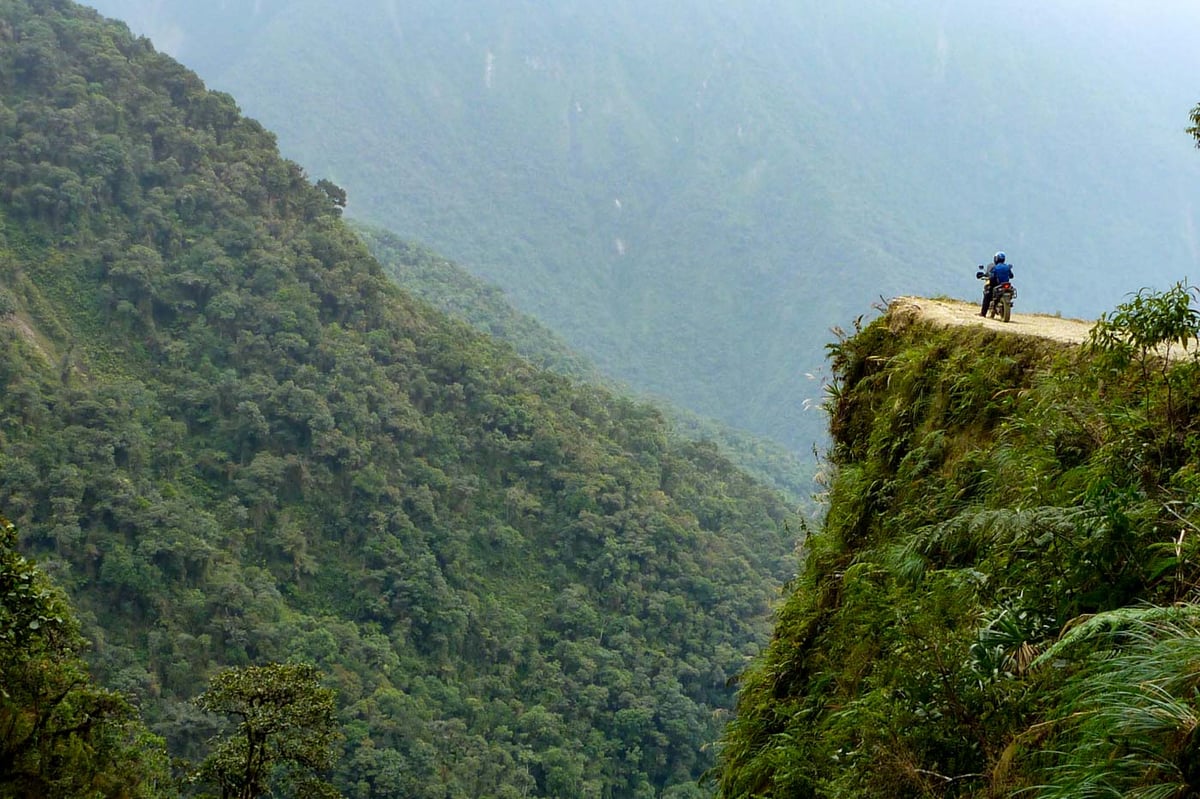
Motorcycle travel is among the simplest and most rewarding ways to see the world. At its core, this is a simple two-step program: Pick a spot on the map, then ride there.
Somewhere along the way you'll find yourself crossing an important intersection where adventure and uncertainty meet, and that's when the magic happens. From here you ride into parts unknown, and if you're lucky, you'll discover a newfound lust for life waiting at the other end.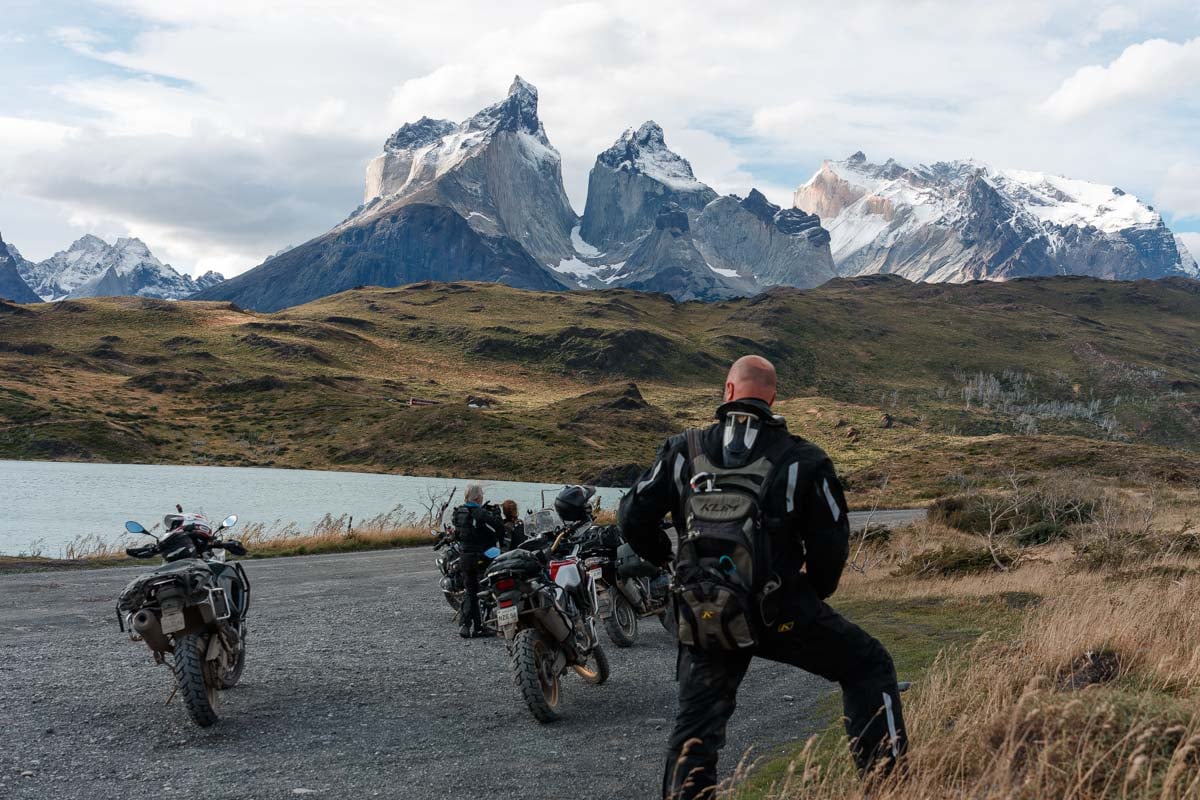
"The world is a big place. Get out there and see as much of it as you can."
Or maybe just a flat tire, a sore rear end, and a week-long thunderstorm of biblical proportions. Sometimes you'll get both on the same trip, and that's called adventure, baby.
Half the fun of motorcycle travel is that you never know what you'll get, but in our experience, a little prep goes a long way to getting it right. To that end, here are a few of our hard-earned tips on how to make the most of your next motorcycle trip.
Packing For the Destination
We lead tours in some of the most unpredictable places on the planet. Destinations like Patagonia, Vietnam, and Thailand can feature a mix of the best and worst conditions imaginable, often on the same day.

"A typical warm and wet day on our tour through Vietnam."
With that in mind, you'll want to plan ahead for both the weather and terrain you'll be riding. A series of checklists goes a long way here from clothing and riding gear to food, shelter, and emergency supplies. Here's our take on the big ticket items.
Choosing the Right Riding Gear
When it comes to riding gear, you've got two main considerations: Weather, and versatility.
In terms of weather, our recommendation is to pack for the worst possible weather you're likely to encounter on your trip. If you're planning to ride in Patagonia, for instance, you'll ride through everything from warm and sunny days to long hours in near-freezing conditions when crossing certain tundras or mountain passes.
It's always better to be overpacked and well-prepared than the alternative, especially if you actually want to enjoy your time on the bike. Do some research online, talk to fellow riders who have been there (we're always available to chat about your next trip), and start putting a gear list together.

"The Klim Badlands jacket, keeping us warm and dry on a wet day in Italy."
As for versatility, we're referring to packing gear that works in a wide range of conditions. A good example of this would be a waterproof outer shell like the Klim Badlands Pro we've been wearing for the better part of a decade. Because this jacket is both weatherproof and highly protective, it doubles as both safety gear and rain gear, giving you one less thing to pack or change depending on the forecast.
Layers, Layers, Layers
We find it's best to think of motorcycle travel like a backpacking trip at 80 mph: You need to pack for the crash, but you also need to contend with Mother Nature.
To that end, we generally recommend packing the same kinds of high-performance base and mid-layers that you'd wear for a weekend in the woods. That means cotton shirts, socks, and underwear are a no-go, and performance synthetic fabrics or merino wool should be touching your skin from head to toe when you're on the bike.
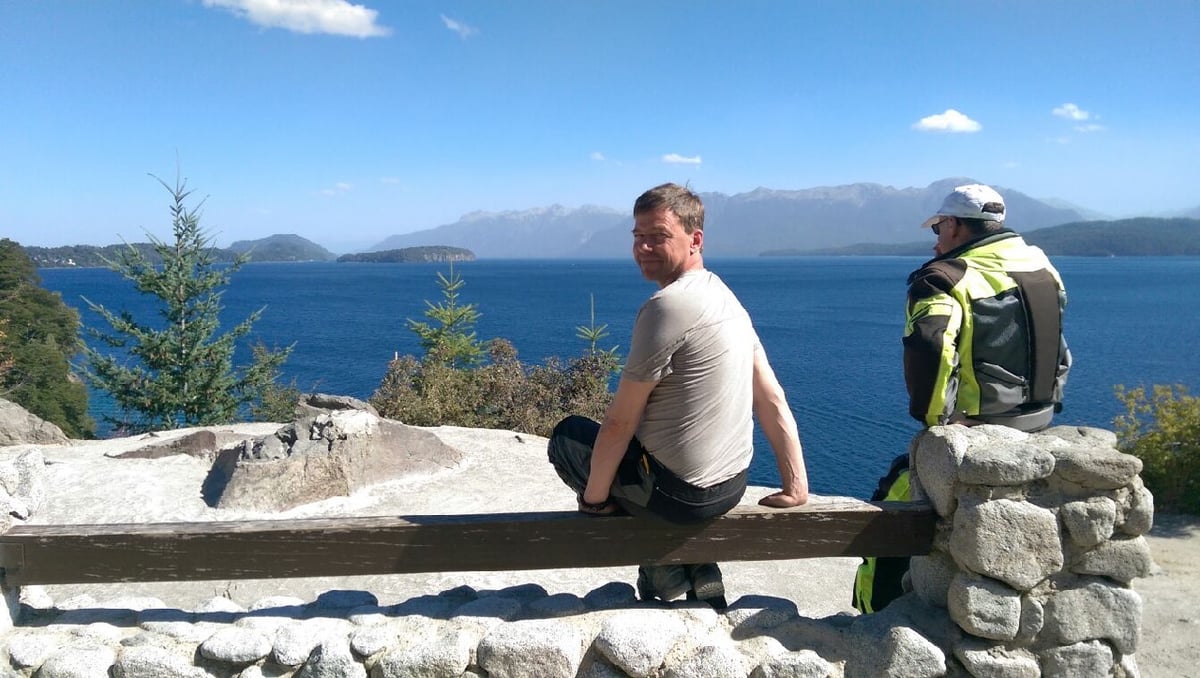
"Moisture-wicking base layers keep you comfortable on and off the bike."
From there it's all about insulation, and for midlayers your best bet is some kind of synthetic-filled jacket. Leave those nice down pieces at home: You'll have plenty of room in your luggage to store a light jacket in warmer weather, and you want something that'll keep you warm even when it's wet.
Choosing Motorcycle Luggage
Riding gear, camping gear, food, clothing... You'll likely be bringing a decent collection of stuff along for any motorcycle trip, and you'll need to figure out where to store it. Nowadays you've got three main options: Soft luggage, hard luggage, and DIY luggage.
In our travels we've found soft luggage is generally the most versatile option as it works well with just about any bike and is reasonably affordable. Soft luggage is also the weapon of choice if you'll be riding any dirt or gravel, as it tends to hold up better in an offroad crash or tip-over situation.

"This soft luggage setup from Tusk is affordable, waterproof, and carries enough gear for long-distance camping trips."
Hard luggage remains the favorite of pavement-pounding road warriors, whether it's factory hard bags or aftermarket panniers. This stuff can be expensive, but it's also convenient because it's typically lockable and easily removed from the bike to carry into hotel rooms for the night when you're not riding.
DIY luggage, on the other hand, typically consists of a combination of waterproof duffel bags, backpacks, and a few good straps to lash it all down. This method will get the job done for less money than anything else, just make sure your essentials are protected from the weather, be it rainfall, mud puddles, or river crossings.
Important Tips For International Motorcycle Travel
If you're looking to travel outside your home country, there's going to be a lot more planning involved. This section is by no means exhaustive, as requirements vary wildly from place to place, but it'll get you pointed in the right direction regardless of where you want to go.
Visas and Permits
One very important note to share here: While a passport alone will get you into dozens of foreign countries, some require additional paperwork and/or permits to visit. The most common we see is visa requirement, and yes, there's a difference between a passport and a visa.
This is a common misunderstanding we've seen countless times, and an understandable one to say the least. Technically the stamps you get on the blank pages of your passport are "visas" themselves, so many travelers believe a visa is simply something issued upon arrival. This isn't always the case.
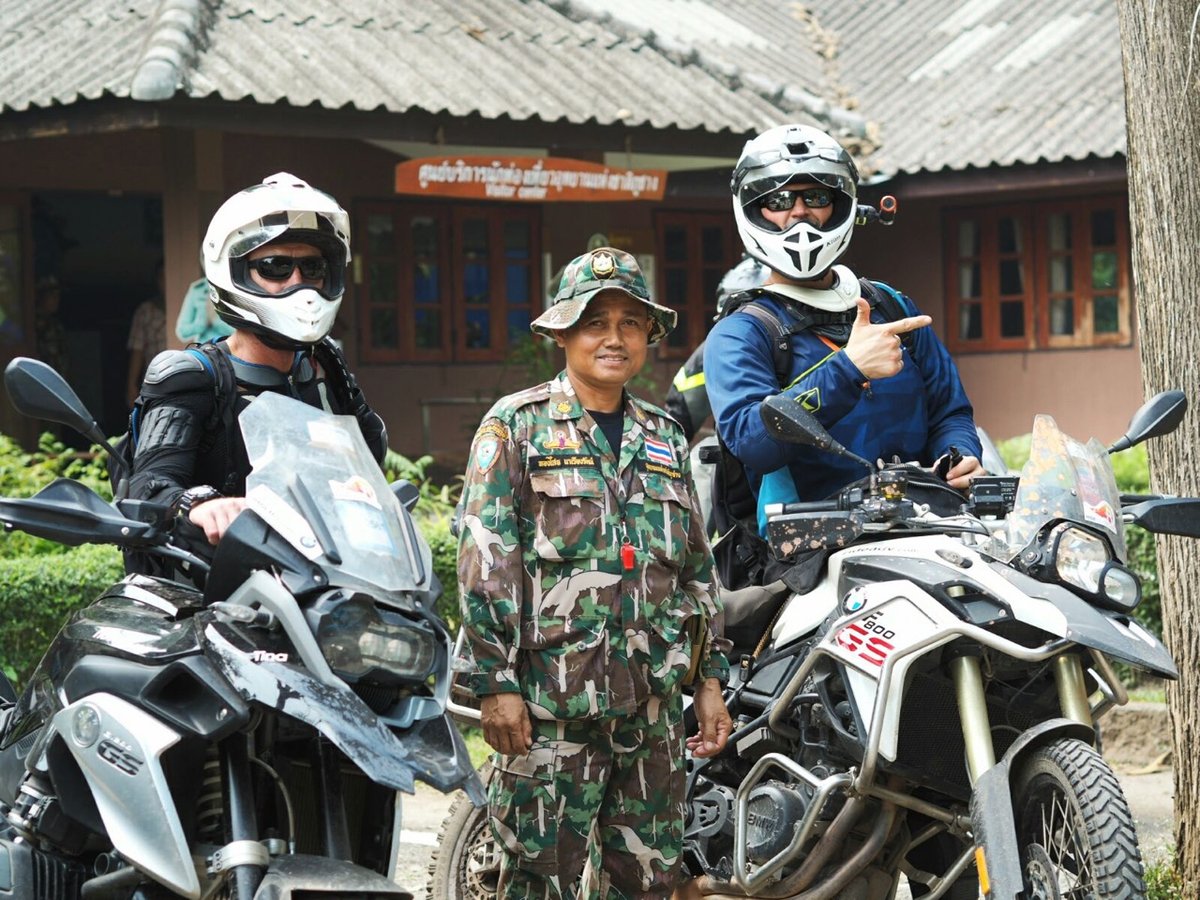
"Know before you go: Visa and permit requirements vary between countries."
If you want to attend our tour through Vietnam, for instance, the country requires you to apply for a visa (in this case an online "E-Visa") before you arrive. Show up without one, and customs can quite literally turn you back around and send you home.
Other countries requiring an advance visa include Australia, Brazil, India, and Egypt, just to name a few. Your best resource for information on visas and other travel permits is the US Department of State website, so make sure to check in there before booking anything out of the country.
Know the Rules of the Road
Laws can differ wildly from country to country, and traffic laws are no exception. For example, in Germany you're legally allowed to drive a car completely naked, but if you try that same trick on a motorcycle you're liable to earn a $45 fine (sounds like a fair deal to us, but to each their own).
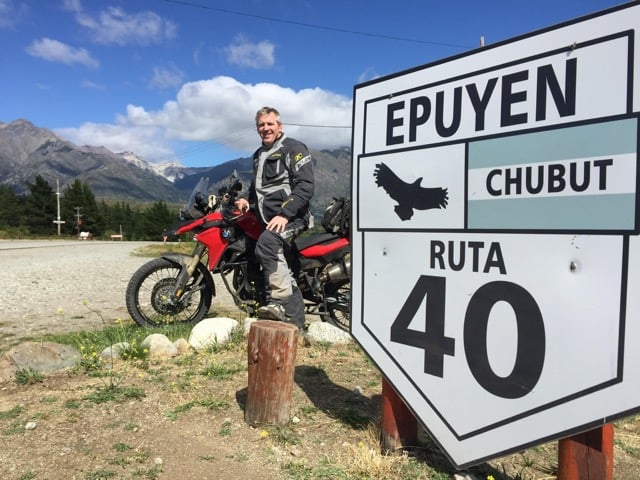
"This sign, for instance, says that speed limits are enforced by birds of prey."
The same goes for more common considerations like right of way, speed limits, lane sharing, and helmet use. This is one place where a guide who already knows the lay of the land can be particularly useful, but again, you should make an effort to read up on any differences in traffic laws or even just traffic etiquette to get the most out of your motorcycle travel experience.
Lastly, we'll also point out that road signs can differ quite a bit from country to country, as can the languages they're written in. Stop signs are more or less universal anywhere you go (they're all red octagons), but if you're counting on English subtitles to get around, you're gonna have a tough time.
Pay Attention to Travel Advisories
Conditions in foreign countries can change rapidly for a number of reasons ranging from disease to civil unrest. For this reason, we've always found it wise to both sign up for and pay attention to travel advisories anywhere you plan to go.
 "As peaceful as the Himalayas may seem there is always some conflict between Pakistan and India that you should be aware of"
"As peaceful as the Himalayas may seem there is always some conflict between Pakistan and India that you should be aware of"
Once again, the US State Department is your best resource here if you're domiciled in the States. There you can subscribe to get the latest updates on any number of countries via the Smart Traveler Enrollment Program (aka STEP), which sends any new developments directly to your email address.
Get Your Finances In Order
Another common consideration many motorcycle travelers overlook is letting their banks know they're leaving the country. That goes for both your cash/ATM source of choice as well as any credit cards you plan to use abroad.
What you want to avoid here is not having access to your money when you need it. Many banks will automatically flag unexpected overseas transactions, and often put a "freeze" on any associated accounts as a safety/anti-theft measure.
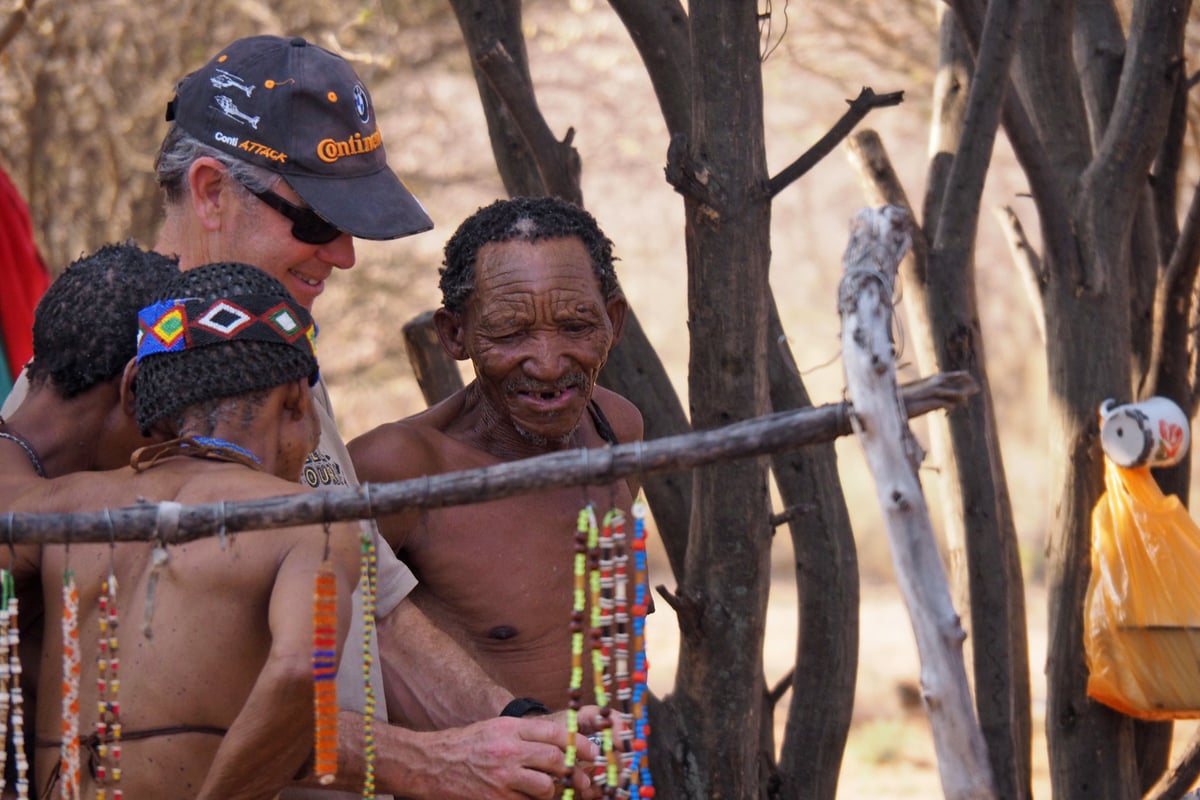
"Sometimes you'll need cash on hand, as most Bushmen don't accept Mastercard."
This issue is further compounded as cellular phone service in foreign countries can be a bit complicated, which makes getting ahold of your bank to give them an "all-clear" to be a bit of a chore. Save yourself potential hassle and tell your financial institutions where you're going ahead of time.
Don't Forget Your Medical Checklist
Medical concerns are another important aspect to consider, both in terms of day-to-day health and emergency care. Here are the basics to make sure you're covered.
Traveling With Drugs
One important consideration that many of our riders often overlook is traveling with drugs, and no, we're not talking about smuggling your personal stash of Gonzo proclivities across the border here.
Both legally prescribed and over-the-counter drugs from your home country can be illegal in the next country over. To avoid an awkward conversation (or worse) when making your way between borders, you'll want to check in with the destination embassy for each country you plan to visit.
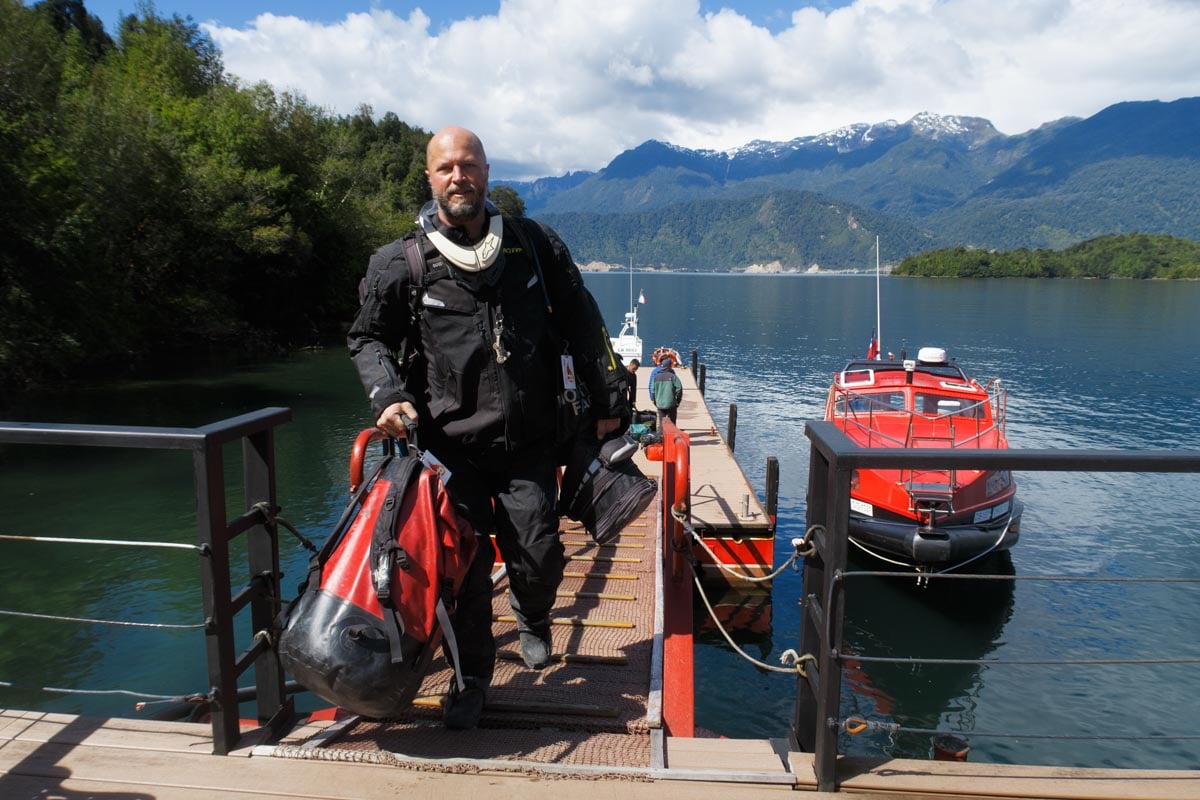
"Tour guide Eric carries a drybag full of assorted pills across international waters."
We recommend putting together a list of all the drugs you'd typically travel with from aspirin to Xanax, and then cross-referencing each online for each of the places you'll be traveling through. If you're the type of person who typically travels with one big bottle of multicolored pills (even if they're all over-the-counter medications) you'll want to get them all organized and in labeled containers as well.
A Word On First Aid...
One of the most common issues we see when traveling with a group is there are nowhere near enough first aid supplies. Typically the root problem is that everyone assumes someone else will pack a first aid kit, and the group as a whole ends up woefully short on basic medical considerations.

"How far to the nearest hospital?"
To state this plainly: Every single rider should be prepared and responsible for their own first aid. That means every bike on the trip should have a full basic kit at a minimum, whether that's a store-bought kit or one that you put together yourself (if you want to go that route, you can check out this basic guide from the American Red Cross).
Vaccine Requirements and Recommendations
Another major consideration when leaving the country is checking up on your vaccines. Being up to date on a certain number of basic vaccines is always a good practice, but many countries also have unique vaccine requirements for travelers as well.
Yellow fever is a prime example, especially if you're traveling from an area where the disease is common. Some countries will even require you to carry proof of certain vaccinations as part of your entry paperwork, so again, make sure to check the rules and requirements for each unique country you visit.
FAQs: Motorcycle Travel Home and Abroad
As a motorcycle touring company that guides trips everywhere from our backyard in Bend, Oregon to Eurasia and beyond, we hear more than our fair share of questions about motorcycle travel. Here are a few of the most common Q's we get.
Do I Need A Special license to RIDE In Another Country?
The short answer here is "Yes, kinda, depends." Certain countries like Chile "require" one but rarely (if ever) enforce it, while others like Vietnam check travelers for an International Driving Permit (IDP) religiously.
Our recommendation is that it's better to have it and not need it than the alternative. Getting an IDP is both convenient and inexpensive, as all you need to do is visit your local AAA office and pay a $20 fee to have one issued. They're typically good for a full year of travel, so even if you only get stopped once, it's a worthwhile investment.
Do I Need Special Insurance for Motorcycle Travel?
While many riders often travel without any special motorcycle insurance, it's a good idea to find some form of coverage if you'll be riding overseas. Many travel insurance companies offer this as part of their policies, but make sure to read the fine print as many agencies have a cut-off on engines over 200cc or so.
Should I Ship My Motorcycle or Just Rent One?
That decision is entirely up to you, but personally we recommend renting a bike for any motorcycle trip that requires a flight. The rental bikes we run on our tours are newer models, well maintained, and well specced, and as an added bonus, you don't have to worry about shipping it back home or trying to sell it when you're done with your trip.
Do I Really Need Travel Insurance?
This depends entirely on your appetite for risk, but there's definitely a strong argument to be made for protecting your investment on a big trip. If you're more of a spontaneous traveler looking to hit the road in the next month or two, rolling the dice may be worth the risk, but if you're planning a trip a year from now, a lot can happen in twelve months.
Closing Thoughts on Getting Into Motorcycle Travel

We know that's a lot to take in, especially considering we started this rant praising the simplicity of motorcycle travel. To recap: Traveling in your home country is a fairly straightforward affair, but the more borders you cross, the more knowledge and preparation is required.
For that reason, we highly recommend hiring a motorcycle travel guide when riding in a foreign country for the first time. Of course we're a touring company ourselves, so you can take that with a grain of salt, but having someone in your midst who speaks the language, knows the area, and is familiar with customs and legal requirements will make any trip much smoother and more enjoyable.
→Read More: 7 Top Adventure Motorcycle Destinations in North America and The Best Adventure Motorcycle Boots.






